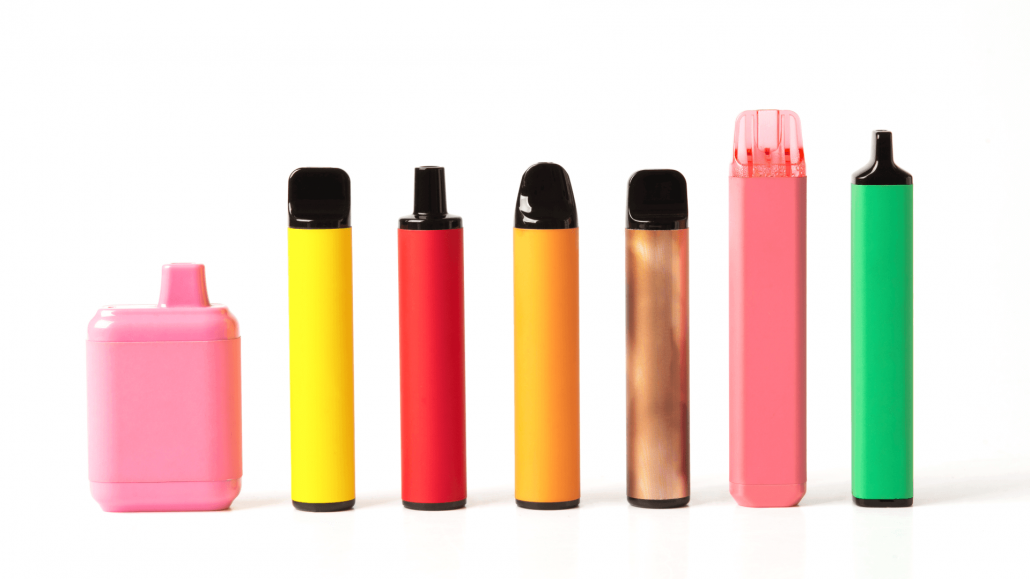August 28, 2025 PCI Centers
Parents: Is Your Teen Vaping at School?
As your teen heads back to school, nicotine addiction may not be the first concern on your mind. But vaping devices are now common on school campuses, often disguised as USB drives or pens. For many students, “just trying it with friends” quickly escalates into daily use and, for some, a serious addiction.
The adolescent brain is still developing, making it more vulnerable to nicotine’s powerful effects. Even short-term use can impair attention, learning, memory, and emotional regulation (CDC, 2025). This means nicotine use during the school year doesn’t just harm health—it can directly affect your teen’s ability to focus, perform academically, and manage stress.
E-cigarettes are often marketed as safer than smoking, but their high nicotine content makes them especially addictive for teens. Nicotine salts—found in most pods—hit the brain faster and at higher levels than traditional cigarettes.
- In 2024, 8.1% of middle and high school students (about 2.25 million kids) reported using tobacco products (CDC, 2024).
- More than 1 in 4 of current youth that use e-cigarettes engage in vaping daily (CDC, 2024)
Signs Your Teen May Be Struggling with a Vaping Addiction
Parents often wonder: How can I tell if my child is vaping or addicted to nicotine?
Look for these red flags, especially during the school year when stress and peer pressure increase:
- Sudden drop in grades or loss of interest in schoolwork
- Irritability, anxiety, or restlessness when not using a vape
- Secrecy or defensiveness about habits and belongings
- Unexplained headaches, fatigue, or disrupted sleep
- Withdrawal from family activities, increased isolation
- Sweet or fruity odors that don’t match typical cologne, gum, or snacks
If these sound familiar, your child may be developing a nicotine dependence.
Why is it Difficult for Teens to Stop Vaping?
Nicotine withdrawal can disrupt your teen’s ability to succeed academically and socially.
Common school-year challenges linked to withdrawal include:
- Trouble concentrating in class
- Irritability with teachers or peers
- Depressed mood, lack of motivation
- Poor sleep leading to fatigue and missed classes
- Intense cravings making it difficult to focus on schoolwork
Without help, withdrawal often pushes students back into use, creating a cycle that can dominate their school year.
Effects of Vaping on Teen Mental Health
Many teens vape to cope with school stress, social anxiety, or depression. While nicotine may bring temporary relief, in the long run it worsens mood regulation and increases vulnerability to mental health struggles (NIDA, 2024).
This creates a dangerous feedback loop:
Stress at school → vaping for relief → worsened mood and anxiety → more vaping.
How PCI Centers Helps Families Break the Vaping Cycle
At PCI Centers, we understand that nicotine addiction is rarely just about the substance. It’s about stress, peer pressure, and sometimes deeper emotional struggles. That’s why we have specialized treatment for families navigating this challenge. Here’s how we can help:
- Family-focused therapy: Giving parents tools to set boundaries and rebuild communication.
- Relapse-prevention strategies: Preparing your teen for school settings where vaping is normalized.
- Integrated mental health care: Addressing co-occurring anxiety, depression, or trauma.
We work with families across Los Angeles and Ventura Counties to create personalized treatment plans that not only stop nicotine use but also strengthen your child’s overall well-being. If you live in Thousand Oaks or Westlake Village, contact us today to explore treatment options.
References
Centers for Disease Control and Prevention. (2025). Health Effects of Vaping. https://www.cdc.gov/tobacco/e-cigarettes/health-effects.html
Centers for Disease Control and Prevention. (2024). Why Youth Vape. https://www.cdc.gov/tobacco/e-cigarettes/why-youth-vape.html
Food and Drug Administration / Centers for Disease Control and Prevention. (2025, January). Results from the annual National Youth Tobacco Survey (2024). https://www.fda.gov/tobacco-products/youth-and-tobacco/results-annual-national-youth-tobacco-survey-nyts
National Institute on Drug Abuse. (2020). Is nicotine addictive? https://nida.nih.gov/publications/research-reports/tobacco-nicotine-e-cigarettes/nicotine-addictive
National Institute on Drug Abuse. (2024). Mental health and substance use: Co-occurring disorders. https://nida.nih.gov/research-topics/mental-health








